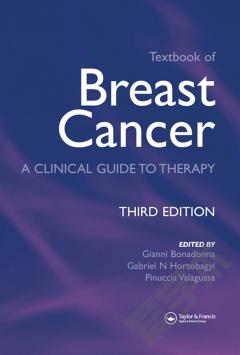Handbook of Psychotherapy in Cancer Care
List of Contributors. Foreword. Preface. Section A: Individual Models of Therapy. Chapter 1 Supportive Psychotherapy in Cancer Care: an Essential Ingredient of All Therapy. 1.1 Introduction. 1.2 Definition. 1.3 History and Evidence Base. 1.4 Qualifications for Clinical Privileges to Provide Supportive Psychotherapy as a Psycho-Oncologist. 1.5 Application of Supportive Therapy in Cancer Care. 1.6 Boundaries in the Therapy Relationship: Therapeutic Activism. 1.7 Themes Met in Advanced Cancer. 1.8 Families as Part of Patients' Supportive Psychotherapy. 1.9 Therapist Issues. 1.10 Service Development Issues. Chapter 2 Cognitive-Behavioural Therapies in Cancer Care. 2.1 Background. 2.2 Processes and Techniques. 2.3 Case Examples. 2.4 Evidence on Efficacy. 2.5 Service Development. 2.6 Summary. 2.7 Supporting Materials. Chapter 3 Cognitive Analytic Therapy in Psycho-Oncology. 3.1 Introduction. 3.2 Theoretical Background of CAT. 3.3 CAT Concepts and Cancer. 3.4 Process of Application of CAT in Cancer Care. 3.5 Supporting Materials. 3.6 A Brief Overview of Evidence on Efficacy. 3.7 Target Groups of Patients for Whom CAT Is Appropriate. 3.8 Case Example. 3.9 What Can CAT Offer in a Cancer Setting? 3.10 Service Development: Integrating CAT into Psycho-Oncology Services. 3.11 Conclusion. Chapter 4 Mindfulness Interventions for Cancer Patients. 4.1 Introduction. 4.2 Mindfulness-Based Stress Reduction. 4.3 Content and Processes of Mindfulness-Based Interventions. 4.4 Case Example. 4.5 Efficacy of MBSR and Mindfulness Interventions. 4.6 Service Development. 4.7 Summary. Chapter 5 Relaxation and Image Based Therapy. 5.1 Background. 5.2 Evidence on Efficacy. 5.3 Processes and Techniques. 5.4 Case Example. 5.5 Service Development. 5.6 Summary. Chapter 6 Motivational Counselling in Substance Dependence. 6.1 Background. 6.2 Processes and Techniques. 6.3 Case Example. 6.4 Evidence on Efficacy. 6.5 Service Development. 6.6 Summary. Chapter 7 Narrative Therapy. 7.1 Background. 7.2 Processes and Techniques. 7.3 Case Example. 7.4 Evidence on Efficacy. 7.5 Service Development. 7.6 Summary. Chapter 8 Dignity Therapy. 8.1 Introduction. 8.2 Background of Dignity Research. 8.3 The Conduct of Dignity Therapy: Processes and Techniques. 8.4 The Therapist's Role. 8.5 Evidence of the Efficacy of Dignity Therapy. 8.6 Service Development. 8.7 Conclusion and Future Directions. Chapter 9 Written Emotional Disclosure. 9.1 Background. 9.2 Evidence on Efficacy. 9.3 Target Patients. 9.4 Processes and Techniques. 9.5 Appendix: Sample Instructions for Expressive Writing for Cancer Patients and Survivors. Section B: Group Models of Therapy. Chapter 10 Supportive-Expressive Group Psychotherapy. 10.1 Introduction. 10.2 Theoretical Background and Themes. 10.3 Goals of Supportive-Expressive Groups. 10.4 Target Groups of Patients for Whom It Is Appropriate. 10.5 Processes and Techniques. 10.6 Case Example. 10.7 Evidence for Efficacy of SEGT. 10.8 Service Development. Chapter 11 A Short Term, Structured, Psychoeducational Intervention for Newly Diagnosed Cancer Patients. 11.1 Introduction. 11.2 Theoretical Background and Themes of Our Psychoeducational Model. 11.3 Target Groups of Patients and Evidence of Efficacy of the Structured Psychoeducational Group Intervention. 11.4 Process, Techniques and Case Example. 11.5 Service Development. 11.6 Summary. Chapter 12 Meaning-Centered Group Psychotherapy. 12.1 Introduction. 12.2 Background. 12.3 Theoretical Conceptual Framework Underlying Meaning-Centred Psychotherapy. 12.4 Target Groups of Patients. 12.5 Main Themes and Format of the Therapy. 12.6 Key Therapist Techniques in the Application of MCGP. 12.7 Case Example. 12.8 Key Challenges in Application of MCGP. 12.9 Overview of Evidence on Efficacy. 12.10 Service Development and Future Directions. 12.11 Summary. Chapter 13 Couple-Focused Group Intervention for Women with Early Breast Cancer and Their Partners. 13.1 Background. 13.2 Intervention Strategies and Main Themes of the Couple-Focused Group (CFG). 13.3 Evidence on Efficacy. 13.4 Processes and Techniques. 13.5 Case Example. 13.6 Service Development. 13.7 Summary. 13.8 Supporting Materials. Section C: Couple and Family Therapies. Chapter 14 Couples Therapy in Advanced Cancer: Using Intimacy and Meaning to Reduce Existential Distress. 14.1 Introduction. 14.2 Integrating Meaning-Making and Intimacy: Working Models. 14.3 Processes: Structure and Overview of Therapy. 14.4 Couple Exercises and Case Examples. 14.5 Evidence on Efficacy. 14.6 Service Development. 14.7 Summary. Chapter 15 Therapies for Sexual Dysfunction. 15.1 Background. 15.2 Processes and Techniques. 15.3 Case Examples. 15.4 Evidence on Efficacy. 15.5 Service Development. 15.6 Summary. 15.7 Supporting Materials. Chapter 16 Focused Family Therapy in Palliative Care and Bereavement. 16.1 Theoretical Background. 16.2 Target Groups of Patients. 16.3 Main Themes and Format of the Therapy. 16.4 Therapy Processes and Techniques. 16.5 Supporting Materials. 16.6 Overview of Evidence on Efficacy. 16.7 Case Examples. 16.8 Service Development. 16.9 Summary. Section D: Therapies Across the Life Cycle. Chapter 17 Therapy in the Setting of Genetic Predisposition to Cancer. 17.1 Background. 17.2 Counselling and Psychotherapeutic Interventions. 17.3 Case Example. 17.4 Evidence on Efficacy. 17.5 Service Development. 17.6 Summary. 17.7 Supporting Materials. Chapter 18 Psychotherapy with Paediatric and Adolescent Cancer Patients. 18.1 Introduction. 18.2 Assessment. 18.3 Service Development. 18.4 Treatment Selection: Methods, Techniques and Efficacy. 18.5 Issues in Treatment. 18.6 Case Discussion: a Multidisciplinary Team Approach. 18.7 Summary. Chapter 19 Therapy for Parental Cancer and Dependent Children. 19.1 Background. 19.2 Theoretical and Evidence-Based Rationale. 19.3 Components of the Programme. 19.4 Evidence for Efficacy. 19.5 Summary of the Training Programme. 19.6 Current and Future Directions. Chapter 20 Psychosocial Interventions for Elderly Cancer Patients. 20.1 Introduction. 20.2 Cancer in the Elderly: Clinical Evaluation. 20.3 Quandaries and Reliability of Interventions. 20.4 Psychosocial Theories on Ageing: Basis for Interventions. 20.5 Elderly Cancer Patient Interventions. 20.6 Forgiveness: Life - Illness - Death. 20.7 Cognitive-Behavioural Therapy. 20.8 Life and Hope: Transforming Fear into Hope. 20.9 Selected Therapies: Intervention Techniques with Groups of Elderly Cancer Patients. 20.10 Case Examples. 20.11 Overview of Evidence for Therapeutic Benefit. 20.12 Conclusion. Chapter 21 Reconstructing Meaning in Bereavement. 21.1 The Clinical Context. 21.2 Theoretical Perspectives: the Changing Landscape of Loss. 21.3 Grief and the Quest for Meaning. 21.4 Techniques for Reconstructing Meaning in Loss. 21.5 Clinical Illustration of Therapy as Meaning Reconstruction. 21.6 Overview of Efficacy of Meaning-Making Interventions. 21.7 Service Development to Build a Programme. 21.8 Conclusion. References. Index.
{{comment.content}}








 京公网安备 11010802027623号
京公网安备 11010802027623号